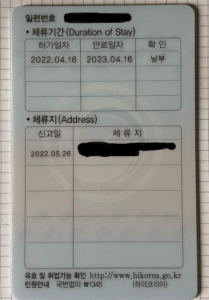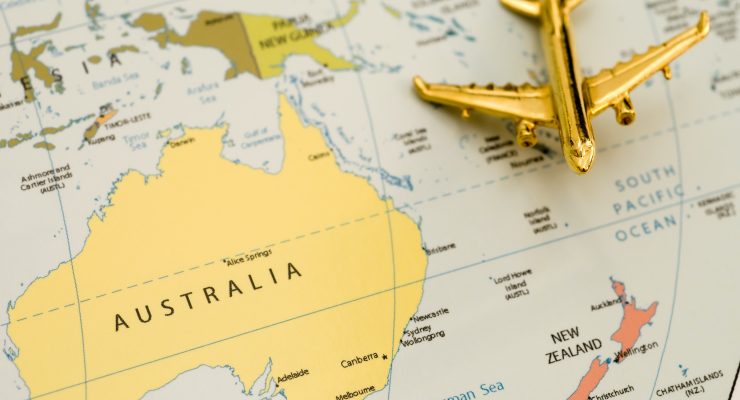For stays longer than 90 days in South Korea, you must register yourself with immigration authorities and request a Foreigner Registration Card or a Residence Card (formerly called the ARC). At the time of registration, you must provide a proof of address (see guide on Finding housing in South Korea). This address will be printed onto your card.
Immigration authorities require that all changes in address be communicated to them within 15 days. Failure to do so may result in expensive fines.
When to update one’s address
On the immigration website, it is written that the declaration of address change must be done within 15 days. In legal texts, they write within 14 days. In either case, do not exceed two weeks. Do it as soon as possible to be safe.
Where to do it
The immigration website indicates that the declaration must be submitted at the local immigration office. You don’t have to go to the one where you had completed your initial registration and obtained your Residence Card. You can go to the centre nearest to your new address.
To find one, type “community center” into NaverMap or KakaoMap. You will see options for the nearest centre to you. Or in Korean, you can write the name of your neighbourhood followed by 자치회관.
How to do the declaration
Go to your community centre (no appointment required) and tell the employees that you would like to update your address. It is very possible that the person will not speak English. Use the Papago translation app to facilitate communication.
You must bring:
- Your passport
- Your Residence Card
- Your proof of address. You can use your lease agreement, Airbnb/Booking receipt etc. Alternatively you could also ask the owner of your residence to fill out a confirmation of residence/accommodation, which can be found here.
- The application form. You can download it on the immigration website or get it directly at the centre.
Your new address will be printed on your Residence Card. And that’s it!

What happens if I don’t make the update in time?
If you fail to update your address within 14 days of moving, you risk a heavy fine.
The law states: “Any of the following persons shall be punishised by a fine not exceeding one million won (…) A person who violates his or her duty to report any change on the place of sojourn under Article 36.”
Some accounts also describe an increase in the fine per day of delay. The bill can therefore be extremely high.
If you don’t update your address, authorities may at any moment and by various means discover your failure to adhere to this rule. So choose wisely! If you simply forgot to do the declaration and can prove that it was a genuine mistake by voluntarily informing immigration, the fine might be reduced (though it’s not guaranteed).
What should I do if I expect to change addresses often during my WHV?
If you’re planning to live nomadically during your working holiday, this law can pose a challenge. But if during your travels you don’t stay anywhere for longer than 15 days, then you are not required to do the declaration.
Otherwise, you have a few options:
- Keep a fixed housing in your name throughout your travels
- Ask a trusted individual who can say that you live with them, and use this as your address
- Declare all of your nomadic address changes. This way you are sure to be in compliance.
- Not declare your address changes. But in this case, you risk the possibility of a fine.
Relevant links:
Consider sharing your experience and advice in the comments to help other working holiday makers in Korea.












 Français
Français English
English





0 comments
{{like.username}}
Loading...
Load more